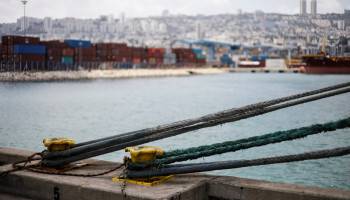The Launch of the Haifa Bayport Terminal: Economic and Security Considerations
September 1, 2021, marked the official start of operations at the Haifa Bayport Terminal. In recent years, Israeli media publications have raised concerns about the port’s operation by a Chinese state-owned company, particularly in view of the growing rivalry between China and the United States. The official opening of the port is an opportunity to revisit the issue.
In a nutshell, the port operator is a private Israeli company, indeed owned by a Chinese company, yet most of its employees are Israelis, apart from a few Chinese management staff.
As for the concerns about disruption to port activity during emergencies or exertion of pressure on the Israeli government, the probability and severity of these risks appear to be limited:
– Bayport will not be owned by its operator;
– Bayport is subject to Israeli law and in emergencies must operate according to the instructions of the Israeli security authorities, just like Israel’s other ports;
– if the operator does not comply with these terms, it risks committing a breach of contract and the Government of Israel will be fully entitled to replace it.
As for espionage risks: for purposes of line-of-sight observation and reception, the Bayport Terminal is no nearer to the Israeli naval base than many civilian buildings in Haifa, yet its location on the water line does indeed offer the potential for gathering acoustic intelligence (signatures of vessels and especially submarines), a potential that exists in principle in transiting commercial vessels as well.
[ > Institute for National Security Studies — September 12, 2021 ]
